Hiking and the German Concept of Wellness
At first glance, they are not the easiest of bedfellows, yet they seem to be moving closer together all the time.
The term wellness originally comes from alternative medicine: more than a hundred years ago, some doctors wanted to embed physical fitness in a more holistic understanding of good health, some sort of a “general harmony of body, soul and natural environment”. That’s the theory.
In practice (and in the modern business world), “wellness” has come to stand for a fairly broad range of leisure facilities.
At one end, you have the fitness center with a sauna. Followed by those adding Feng Shui, facials and mud baths.
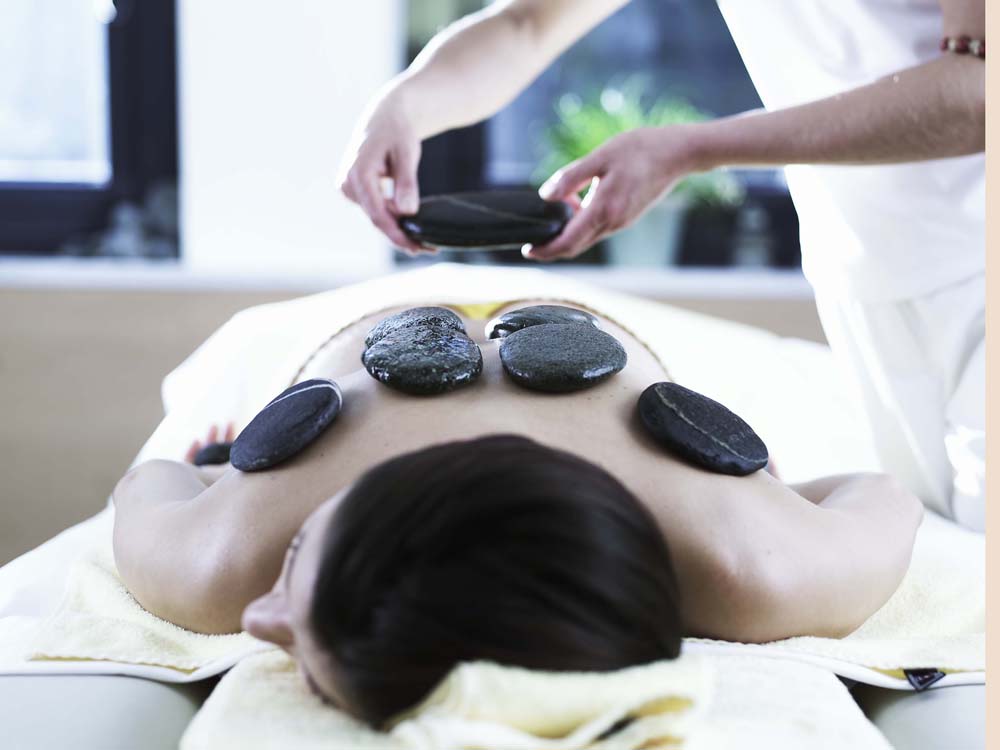
At its outer fringes, it comes with glass bead curtains and stones that eliminate bad energy.
Wellness comes uncomfortably close to an esoteric cult of the body.
Wellness hotels – resort hotels that offer you a wide range of indoor experiences to complement or even replace a conventional holiday – have become particularly popular in places that are mainly associated with winter sports.
There is a strong commercial rationale behind this: once you have created enormous capacities to accommodate holiday makers in the skiing season from Christmas to Easter, you are naturally grateful for any good idea of how to attract the punters for the remaining months of the year.
Hiking is such an idea, of course. But summers high up in the mountains are notoriously unstable. A summer day in the Alps can be a truly glorious thing – as anyone can witness who has ever watched a TV ad for alpine dairy products or an episode of Heidi.
But summer days can also be foggy, cold and miserable. Upwards of 2000 meters, snow can fall at virtually any time of the year.
Such conditions can turn a hike into a fairly unpleasant affair at best and, at worst, into a fight for survival.
Which is why all but the bravest hikers would rather go somewhere else on those not altogether that infrequent days.
But where can they go? Enter “Wellness”
Wellness has also benefited tremendously from the recent polarization of the travel market.
Success in the modern business world – whether you are operating a supermarket, a fashion retail chain or a tourist resort – increasingly means that you have to either sell a commodity or a premium product.
Cheap chain hotels (such as Etap, Motel One and Formule 1 in Europe) and fast food outlets prosper, as do bijou retreats and three-star restaurants.
But the business model of the family-run mid-market operation is increasingly coming under pressure.
Operators face a stark choice these days: either they turn over their product in great bulk with small margins in an environment of cut-throat price competition, or they focus on the discerning clientele of the luxury market.
How does the market for premium products work?
A cheap watch, for example, is a commodity. Every time you look at it, it tells you the time: “It’s 3:15”, and that’s pretty much all it does.
If you look at an expensive watch, however, it tells you the time and simultaneously reassures you of your social status: “It’s 3:15”, it says, “and you are rich enough to afford me”.
Some people are willing to pay a premium for this service. Hence the name.
Wellness is undoubtedly such a Premium Product.
Hiking, on the other hand, has its roots in an anti-materialistic or, at the very least, non-materialistic culture.
For many years, it was the classic low-cost alternative to a “proper” holiday for young couples with more children than they could afford.
Nowadays, this is the one group you almost never meet on any of the fancy new-style trails in Germany.
What you see instead are middle-aged people of academic appearance, often female, often single. And many, many empty nesters.
They could easily spend luxury holidays in the Dominican Republic, the US or the Far East, but they would rather not.
Hiking, for them, is a part of their pick-and-choose baby boomer lifestyle. A bit of nature, a bit of fine dining, a bit of cultural experience. Perhaps even a bit of piped-in Vivaldi in a lounge chair by the jasmine-scented hotel pool.
Hiking and wellness: strange bedfellows they may be, but bear in mind that arranged marriages are often the most stable unions.
This one seems to be a partnership that is not going to be dissolved anytime soon.

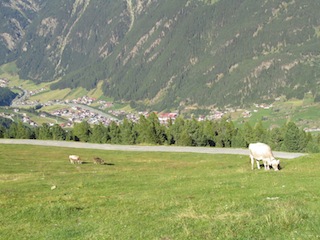


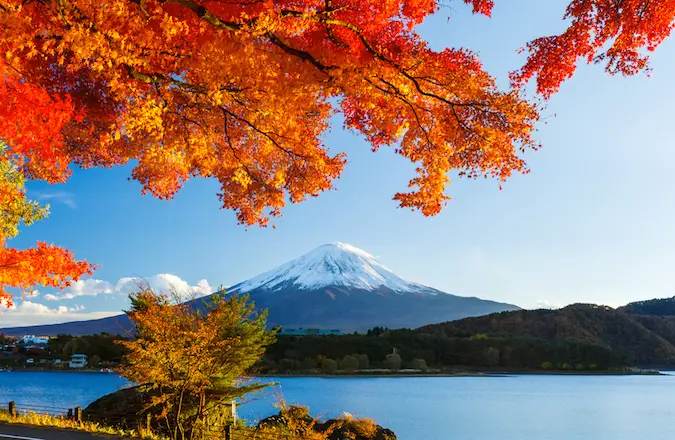
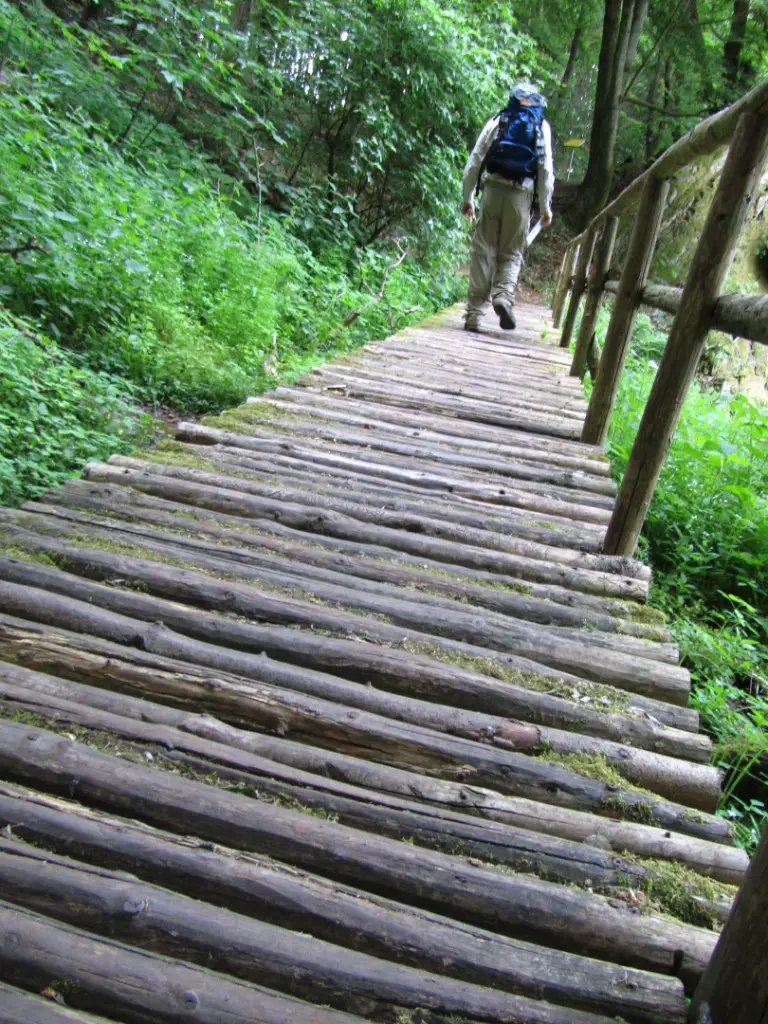
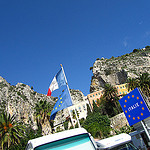
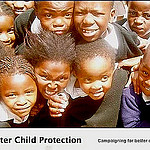
As you should, Sophie. *wink*
I seem to remember those glass bead curtains and stones that eliminate bad energy :) Whether it’s feng shui or Rolex watches, we’re all such willing victims of marketing ploys, aren’t we…
Ha ha, I actually will do without the massage too, just give me a nice glass of wine as a reward for my hard work and I’ll be good :)
Frau Easy Hiker agrees 100 %, Debbie. I myself can do without the massage.
I would have to say that, of course, hiking goes hand in hand with wellness. Exercise equals a more healthy person. The trick is to make them fit together. Educate people so they know hiking doesn’t mean you have to trek up hill for 4 hours and they may be more inclined to do especially if a massage is included at the end :)
Interesting analysis of the relationship between hiking and wellness.
An interesting and somewhat provacative post. I like the analogy with the watch. Hiking, for me, is the chance to be myself and not think about status or any vanity. It’s the chance to get away from that stuff and ponder the important issues and ideas. Or maybe to just chill out and enjoy the scenenry and immediate surroundings.
How fascinating, I like the term ‘wellness’ as in its very composition it suggests that it is packaging up a natural sense (whatever that might mean) of happiness/health/fitness. Hiking will be big business for a long time to come. I found a blog recently entitled the Bratpacker, bringing out the fact that sometimes we like to travel with luxury, sometimes with bare essentials. Hiking perhaps is now leaning towards the “can hack it, but prefer not to do it all the time” people (I am probably one of those)?
Maybe this is why I like hiking so much! While everyone likes a bit of luxury and pampering every once in a while, I like the simple, quiet, and peaceful side of things. I don’t need this as a status symbol or to make me feel better about myself. While I am not single and female or older and an empty nester, I like hiking just the same and enjoy the time I spend enjoying the simple, peaceful, and beautiful side of nature. It’s when I feel most alive.